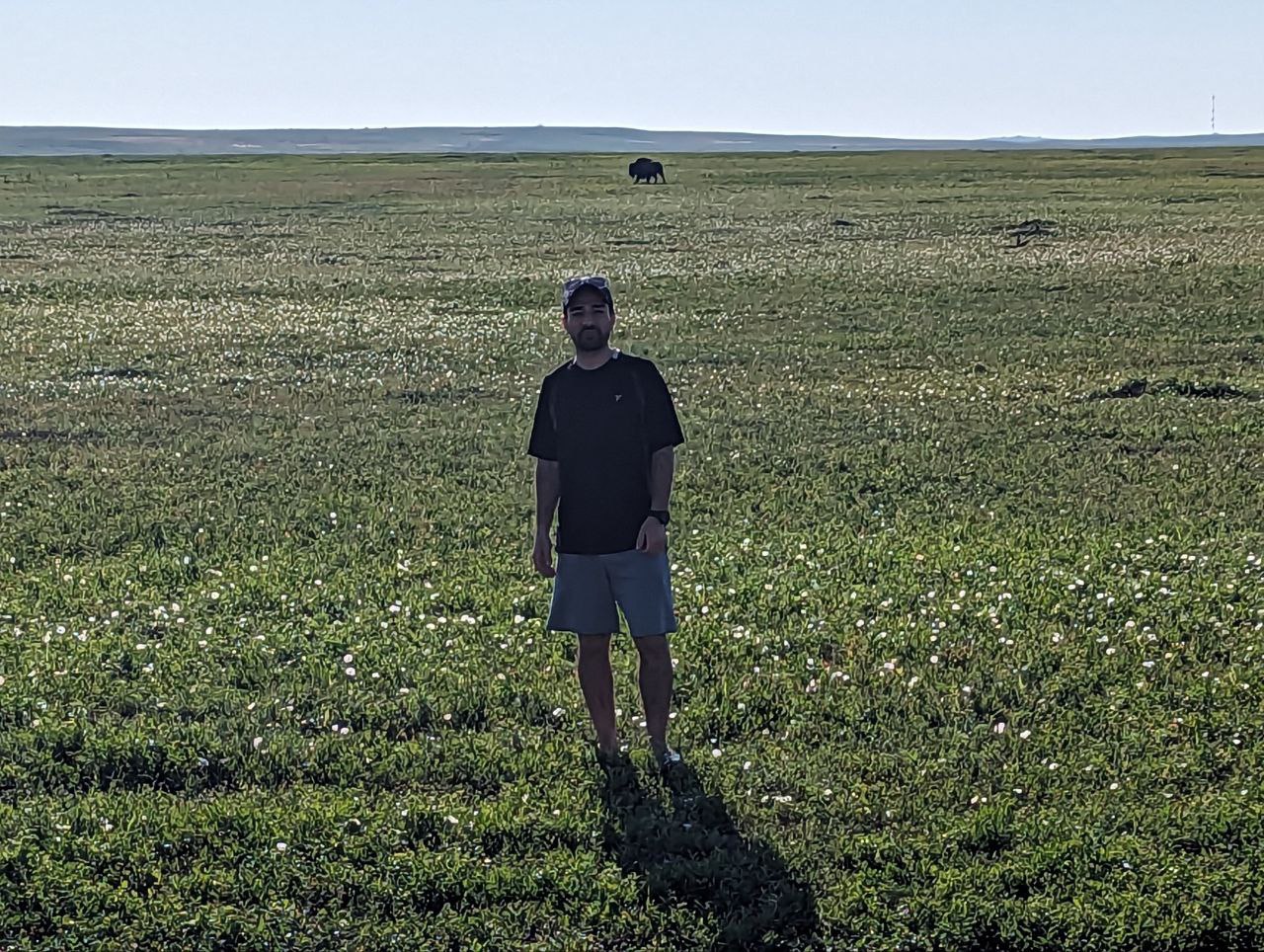Yashar Makhtoumi
Ph.D. | University of Wisconsin-Madison
Background
My name is Yashar Makhtoumi and I am a postdoctoral research associate at the Nelson Institute, Center for Sustainability and the Global Environment. My research focuses on the impacts of land use/land cover and climate change on the hydrologic cycle, water quality, and soil biogeochemistry. I joined the Gibbs Land Use and Environment Lab in January 2023 and colaborate with Dr. Tyler Lark to better understand the connection between agricultural conservation practices and freshwater quality. I also study field-level irrigation mapping and water use to improve our understanding of agricultural water resources management across the US. Prior to joining the Gibbs Lab, I obtained my Ph.D. in Civil and Environmental Engineering from Florida State University in December 2022. During my Ph.D., I contributed to USDA research examining changes in hydrologic water balance, riverine suspended sediment, soil erosion from agricultural lands, and nitrogen and phosphorus cycling under the combined impacts of land use and climate change, and farm management.
Interests
In my free time, I enjoy playing soccer and traveling as well as hiking, especially in grasslands (the picture is from my last trip to Buffalo Gap National Grassland, South Dakota.)

Teaching Experience
I have had the opportunity to teach and assist in various courses related to environmental science, hydrology, and geospatial applications. From 2020 to 2021, I taught Environmental and Hydrologic/Hydraulics Engineering Labs for 4 semesters, with class sizes ranging from 20 to 30 students per semester. One of these semesters took place during the pandemic, requiring me to adapt to online and hybrid formats, including both synchronous and asynchronous sessions. Beyond instruction, I designed teaching materials and experiments, evaluated student performance, and provided support through office hours. Additionally, I have served as a teaching assistant for multiple courses throughout my graduate studies, including RS and GIS Applications for Civil and Environmental Engineering and Labs. I also had the opportunity to co-instruct Hydrologic Engineering, further expanding my teaching and mentoring experience. Through these roles, I have developed a strong passion for teaching, mentoring students, and making complex scientific concepts more accessible.
Teaching Philosophy
My teaching philosophy revolves around creating an inclusive and engaging classroom where students feel empowered to explore, question, and grow. I believe in the power of active learning, encouraging students to apply theoretical concepts to real-world scenarios. By fostering curiosity and critical thinking, I aim to equip students with the skills and confidence to tackle complex environmental and hydrologic challenges.
Mentoring
I enjoy mentoring students and junior researchers, helping them develop their skills and pursue their academic and professional goals. Currently I provide mentorship to two undergraduate students interested in pursuing graduate studies and a PhD student, offering guidance on research and professional development.
Conferences
Conferences like AGU offer invaluable opportunities for networking, collaboration, and professional development. They bring together scientists from diverse fields, fostering interdisciplinary discussions that can inspire new research ideas and approaches. I try to regularly attend AGU as it brings together experts from across the globe to share groundbreaking findings and foster interdisciplinary discussions. In addition, I attend specialized conferences like the GeoForGood Summit and the American Meteorological Society (for the Hydrology section) to dive deeper into specific topics, such as remote sensing and/or precipitation. These smaller, regional events allow for more targeted discussions and help me stay connected with experts in particular areas of my research.
AGU 2022-Chicago
AGU 2024-DC
